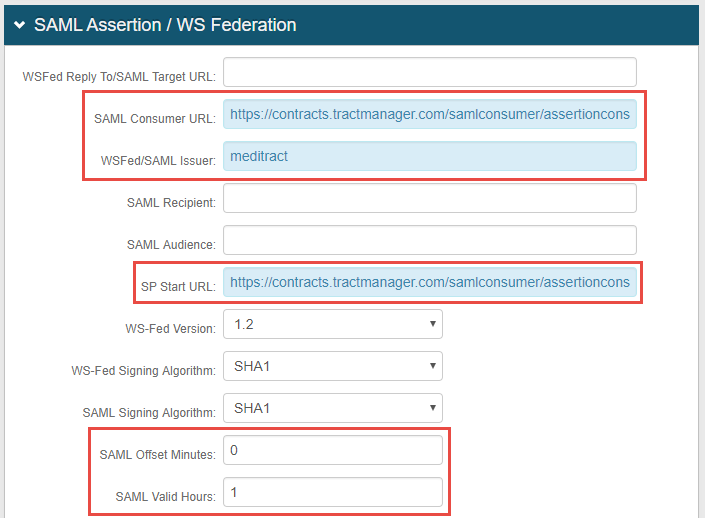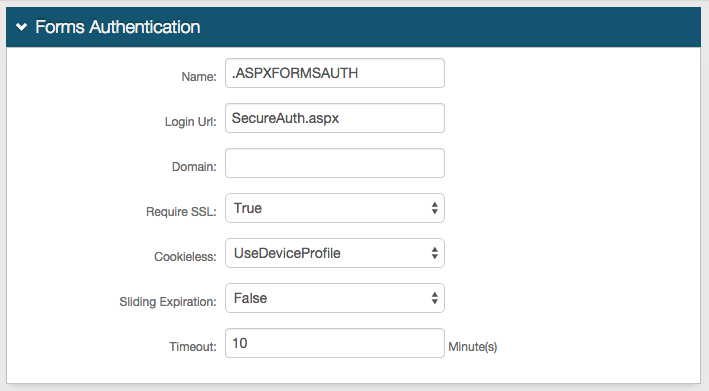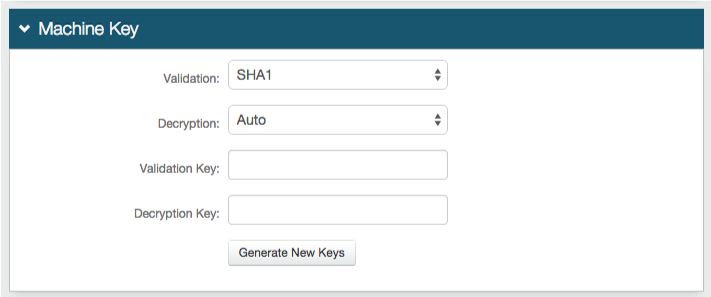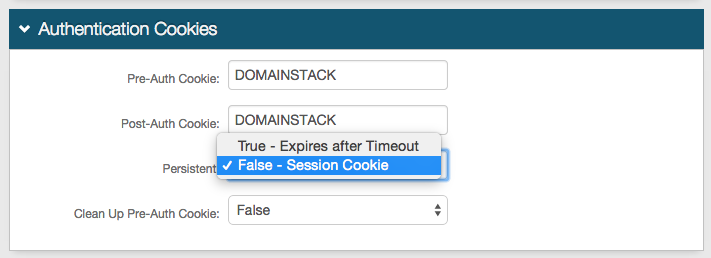MediTract (SP-initiated) Integration Guide
Introduction
Use this guide to enable Multi-Factor Authentication and Single Sign-on (SSO) access via SAML to MediTract.
Prerequisites
1. Have a MediTract account
2. Acquire the MediTract Client Name from the SP
3. Create a New Realm for the MediTract integration in the SecureAuth IdP Web Admin
4. Configure the following tabs in the Web Admin before configuring the Post Authentication tab:
Overview – the description of the realm and SMTP connections must be defined
Data – an enterprise directory must be integrated with SecureAuth IdP
Workflow – the way in which users will access this application must be defined
Multi-Factor Methods – the Multi-Factor Authentication methods that will be used to access this page (if any) must be defined
SecureAuth IdP Configuration Steps
Post Authentication
 |
1. In the Post Authentication section, select SAML 2.0 (SP Initiated) Assertion Page from the Authenticated User Redirect dropdown
2. An unalterable URL is auto-populated in the Redirect To field, which appends to the domain name and realm number in the address bar (Authorized/SAML20SPInit.aspx)
User ID Mapping
 |
3. Select Authenticated User ID from the User ID Mapping dropdown (default)
4. Select urn:oasis:names:tc:SAML:1.1:nameid-format:unspecified from the Name ID Format dropdown (default)
Select a different option if MediTract requires it, which the Service Provider (SP) provides
SAML Assertion / WS Federation
 |
5. Set the SAML Consumer URL to https://contracts.tractmanager.com/samlconsumer/assertionconsumer.aspx?IDProviderName=<Client Name>
6. Set the WSFed/SAML Issuer to meditract
The WSFed/SAML Issuer must match exactly on the SecureAuth IdP side and the MediTract side
7. Provide the SP Start URL to enable SSO and to redirect users appropriately to access MediTract
For example, the SP Start URL would be https://contracts.tractmanager.com/samlconsumer/assertionconsumer.aspx?IDProviderName=<Client Name>
8. Set the SAML Offset Minutes to make up for differences between devices
9. Set the SAML Valid Hours to limit for how long the SAML assertion is valid
Note
For steps 5 and 7, replace <Client Name> with the actual value provided by MediTract
Note
No configuration is required for the WSFed Reply To/SAML Target URL, SAML Recipient, or SAML Audience fields
 |
10. Leave the Signing Cert Serial Number as the default value, unless there is a third-party certificate being used for the SAML assertion
If using a third-party certificate, then click Select Certificate and choose the preferred certificate
11. Download the Assertion Signing Certificate, which is used in the MediTract Configuration Steps
12. Provide the Domain in order to Download the Metadata File, which is used in the MediTract Configuration Steps
Warning
Click Save once the configurations are completed and before leaving the Post Authentication page to avoid losing changes
Forms Auth / SSO Token
Optionally, in the Forms Auth / SSO Token section, click the View and Configure FormsAuth keys/SSO token link to configure the token/cookie settings and configure this realm for SSO.
 |
MediTract Configuration Steps
1. Contact MediTract and provide to them the following:
The SAML signing certificate (downloaded in step 11)
The metadata file (downloaded in step 12)
The SAML Issuer value, meditract (configured in step 6)
2. Test the SAML login once MediTract has applied the changes


